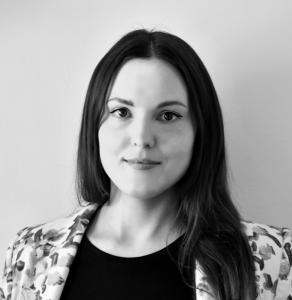Madeline Delbe
Madeline Delbe, M.A.
Rheinische Friedrich-Wilhelms-Universität Bonn, Università degli Studi di Firenze und Université Paris-Sorbonne (Paris-IV) (april - june 2023)
PhD project: Practices of Entanglement. Mediating Art, Knowledge, and Trade between Florence and Flan-ders in the Early Modern Era (c. 1550–1680)
Vita


Madeline Delbé is a doctoral student in Early Modern Art History at the Universities of Bonn, Florence, and Paris (Sorbonne), where she affiliated with the international doctoral school European Founding Myths in Literature, Art, and Music. She holds a BA in Art History and English Studies from the University of Trier, an MA in Art History from the University of Bonn, and a binational MA in Renaissance-Studies from the Universities of Bonn and Florence. She has held fellowships at the University of Bonn, the Franco-German University, and the Warburg Institute in London. Since 2015, she has been working at the rare book section of the library of the Kunsthistorisches Institut in Florenz – Max-Planck-Institute. She is a board member of the Arbeitskreis Niederländische Kunst-und Kulturgeschichte – ANKK e.V. and co-founder of Doktorand:innen-Italien-Netzwerk – DIN, for which she has organised several conferences, workshops, and panels.
From April to June 2023, she conducted research in Paris as a DKF Paris scholarship holder.
Research focus 

Practices of Entanglement. Mediating Art, Knowledge, and Trade between Florence and Flanders in the Early Modern Era (c. 1550–1680)
The PhD project focuses on the mobility of Flemish and Italian artists in the late 16th and the 17th century, scrutinising the cultural and artistic dynamics between mainly Florence and Antwerp during this period. By identifying and connecting sites of artistic interrelations and mediation between artists, patrons, artistic centres, and mediators such as merchants or diplomats, my dissertation project analyses the artistic production and transfer between Florence and Flanders as well as the trading and cultural network linked to art. In doing so, it aims to investigate which kinds of transfer were conducted between these two metropolises in the early modern period and whether this can be defined as a distinctive phenomenon, transferable to parallel artistic dynamics in Europe at the time.
During my fellowship at the DFK Paris, I will focus on primary sources, especially drawings, held by cultural institutions in Paris, the methodological approach of artistic mobility as a research field, and Paris as a stopover for artists travelling between Italy and the Southern Netherlands.
Contact




